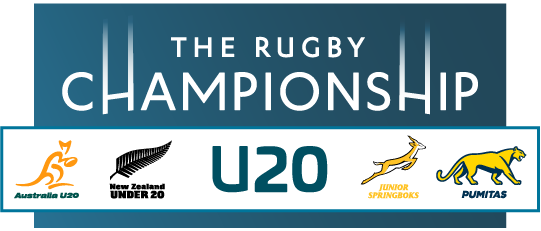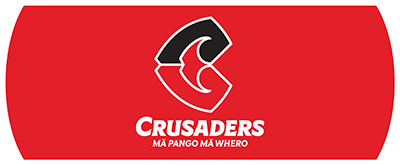
Super Rugby Pacific
The world’s best provincial competition kicked off a new era in 2022 following a new joint venture partnership between Rugby Australia (RA) and New Zealand Rugby (NZR).
In February 2022, the new 12-team Super Rugby Pacific competition welcomed the introduction of Fijian Drua and Moana Pasifika who joined the five Australian and five New Zealand sides.
The competition structure for Super Rugby Pacific is as follows:
- 12 teams (alphabetical order) with Blues, Brumbies, Chiefs, Crusaders, Fijian Drua, Highlanders, Hurricanes, Melbourne Rebels, Moana Pasifika, NSW Waratahs, Queensland Reds, Western Force
- 18-week competition window from 18 Feb to 18 June 2022 and 24 February to 24 June 2023
- 91 matches in total
- Teams will play 14 regular season matches with each team to host seven matches
- Teams will play 8 teams once and 3 teams twice with a focus on derby matches
- One competition table with teams ranked 1 to 12 based on competition points
- Three-week playoff format involving the top eight teams on the overall competition table with quarters, semis and final as follows:
- Quarterfinals – 1 v 8, 2 v 7, 3 v 6 and 4 v 5 with the top-ranked team hosting
- Semi-Finals – top-ranked quarter-final winner hosts against lowest-ranked quarter-final winner & 2nd highest ranked quarterfinal winner hosts 3rd highest ranked winner
- Final – top-ranked semi-final winner hosts the other semi-final winner.
POINTS TABULATION
Competition points will be awarded in all Regular Season matches on the following basis:
Win 4 points
Draw 2 points
Loss 0 points for loss of more than 7 points
Bonus 1 point for loss by 7 points or less
Bonus 1 point for 3 tries or more than opponent
Bye 0 Points
Golden Point
If a regular season match is tied at the end of normal time, the procedure will be: An up to 10 minute golden point period is played after a five minute break;
The first team to score (by a penalty, drop-goal, try, or penalty try) will be the winner;
One minute before golden point begins, the match Referee will do a coin toss to choose which team kicks-off and on which side of the pitch they will play;
Teams and match officials must remain on the field during the break;
Coaching staff are not permitted onto the playing enclosure (i.e., those coaching staff in coaches boxes are not permitted down pitch side);
Injury time is added to this period of play;
The Laws governing Tactical Replacements, Temporary Replacements and Permanent Replacements apply for the entire duration of the match, inclusive of the Golden Point period (ie teams are not entitled to "reset" their replacements).
If no points are scored in the Golden Point period then the match is declared a draw.
Points allocation from matches that go to Golden Point:
1. Drawn match at fulltime goes to Golden point. If no-one scores any points in the 10min period then both teams retain the competition points earned in regular time (ie 2competition points each for the draw, plus if one team has scored 3 or more tries than the opposition then they would get an extra bonus point).
2. Drawn match at fulltime goes to Golden point. Team “A” scores first in golden point. Team A gets 4 competition points for the win (plus any bonus points for scoring 3 or more tries than the opposition, which for clarity could be 2 tries in regular time and 1 in golden point). Team B gets 1 competition point for losing within 7 points. Note in another example if a team scores 3 or more tries in normal time, but normal time ends in a draw, and then that team loses in Golden Point then they would get 1 point for the 3 or more tries and a further 1 point for losing within 7. The winning team in this example would get 4 points.
DETERMINING REGULAR SEASON TABLE PLACING
In the event of two or more teams being equal on competition points for any position on either the Competition table, either during or at the end of the season, such position will be decided upon using the following steps until the tie is broken:
a) Most wins from all matches;
b) Highest aggregate points difference from all matches;
c) Most tries from all matches;
d) Highest aggregate difference of total tries for versus tries scored against from all matches;
e) Coin toss
DETERMINING WINNERS OF SUPER RUGBY PACIFIC FINALS SERIES MATCHES - IF THE TEAMS ARE TIED AT FULLTIME
a) Extra Time - the procedure will be:
i) After a five-minute rest period, the extra time is played in two 10 minute periods with a two minute halftime;
ii) Before the extra time begins, the match Referee will do a coin toss with the two captains one minute before the new kick-off. The winner of the coin toss decides if his team wants to kick-off or if his team wants to choose the side of the pitch it wants to play on for the first 10-minute period;
iii) For the second 10-minute period, the teams change sides and the team that did not kick off in the first period does so;
iv) Coaches are not permitted on the field during the rest period or halftime.
v) Teams and match officials must remain on the field during the rest period and at halftime.
vi) Injury time is added to the two 10-minute periods.
b) Sudden Death – if the match is still tied at the end of extra time, the procedure will be:
i) An up to 10-minute sudden death period is played after another five minute rest period;
ii) The first team to score (by a penalty, drop-goal or try) will be the winner;
iii) As for extra time, one minute before sudden death begins, the match Referee will do a coin toss to choose which team kicks-off and on which side of the pitch they will play.
iv) Teams and match officials must remain on the field during the rest period.
v) Injury time is added to this period of play.
c) Kicking Competition – if the match is still tied at the end of sudden death, the Referee will conduct a place kicking competition to determine the winner of the match, according to the following procedures:
i) All Players and Match officials will remain on the Playing Area. The Referee will call the captains of the two teams together and will conduct
a coin toss. The winner of the coin toss then may either choose which Team kicks first (in which case the loser chooses the end at which all place kicks will be taken) or choose the end at which all place kicks will be taken (in which case the loser chooses which Team kicks first).
ii) Each Team must nominate five Players to take part in the competition. Only Players on the Playing Area at the final whistle of Sudden Death may be nominated. No substituted Players, injury-replaced Players or Players who have been shown a red card may take part at any time. For clarification purposes, any Player who has received a yellow card and who remains in the sin bin at the time of the final whistle of Sudden Death may not take part in the place kick competition. The order in which the nominated Players will kick does not have to be predetermined.
iii) The Match Officials and the ten nominated Players (five from each team) will assemble on the halfway line. Team management and Players not nominated must remain behind the halfway line in the side of the Playing Area not used. No one other than the Match Officials, the Match Manager, two Ball persons and the participating Players are allowed in the part of the Playing Area being used for the competition (including around the Playing Area, behind the posts, etc).
iv) The five Players from each Team will place kick from three different points, all on the 22-metre line, as follows:
First point: directly in front of the posts
Second point: on the 15-metre line on the left hand side facing the posts
Third point: on the 15 metre line on the right hand side facing the posts
v) The Referee will start the competition by calling the first Player selected from the Team kicking first to the first kicking point. Once the Player has taken the place kick, the Referee calls a Player from the opposing Team to take his place kick from the same point.
vi) The next two Players (one from each Team) will place kick from the second point in turn. This will continue until all five Players from each Team have place kicked (the next players place kicking respectively from the third point, the first point and finally the second point), or until one Team is unable to equal the score of the other Team within the remaining number of kicks (at which time the Referee will declare the winner).
vii) If there are an equal number of successful kicks once each Team has completed its five place kicks, the competition continues on a ‘sudden death’ basis, following the same order of kickers used in the first five kicks.
viii) The competition will continue two kickers at a time (one from each Team), going progressively through the three kicking points as stated above (and repeating the process if necessary) until one player succeeds with a place kick and the player from the other Team taking the same place kick misses it. Once this occurs, the Team of the player who succeeded with the place kick will be declared the winner. Each of these additional kicks shall be taken by the same 5 players in rotation.
ix) Throughout the place-kicking competition:
a) Once a Player has positioned the ball on the kicking tee, he must take the kick within one minute. Should he take longer, the Referee shall declare the kick unsuccessful.
(b) After each kick, the Referee records the number of the Player and whether or not the attempt was successful. The Sideline Manager / Substitution Recorder will record the same details on the official Match report.
(c) Whether or not the kick is successful in each case is the sole decision of the Referee, who may at his sole discretion rely on the assistance of his assistant Referees. The Referee’s decision shall be final and binding.
(d) Once a Player has completed their place kick, they shall return to stand with their Team behind the halfway line in the side of the playing area not used.














